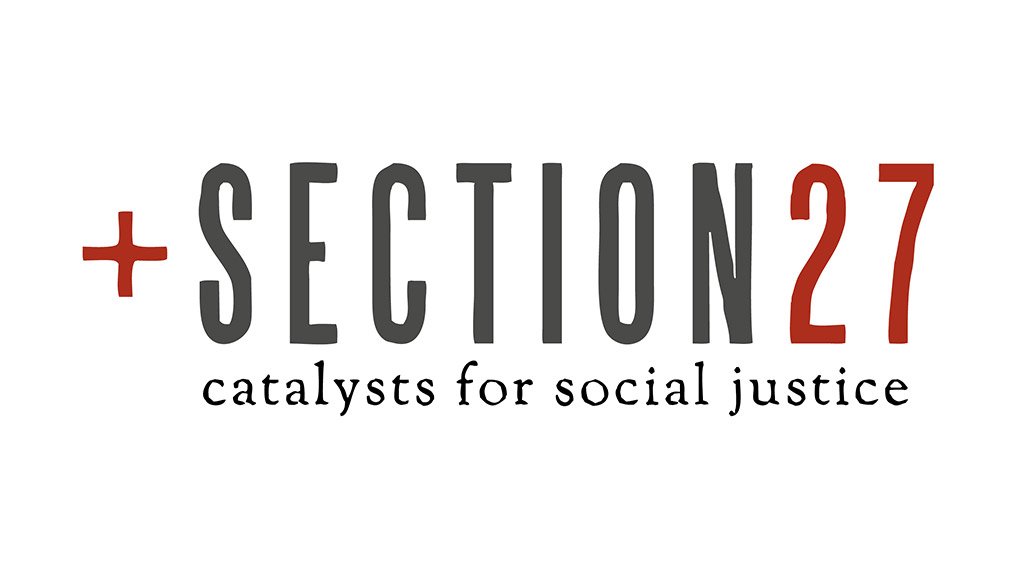/ MEDIA STATEMENT / The content on this page is not written by Polity.org.za, but is supplied by third parties. This content does not constitute news reporting by Polity.org.za.
SECTON27, representing the Centre for Child Law and the parents of two learners who were assaulted by their teachers, will partially appeal the High Court’s judgment in the Supreme Court of Appeal on 26 February 2024. Despite corporal punishment being banned from our schools since 1996, both teachers received lenient sanctions from the South African Council for Educators (SACE), which were based on its internal policy called the “Mandatory Sanctions Policy”. This internal policy prescribes uniform sanctions to educators found guilty of misconduct.
In 2019, SECTION27 reported the two educators to SACE for egregious assault against very young learners. In the first instance, a learner in grade two was hit on the back of his head with a PVC pipe by his teacher. In the second instance, a teacher hit a grade five learner on her cheek and then on her head. The learner experienced a lasting bleed from her ears which required her to visit several doctors, resulting in her absenteeism, from school and her repeating her grade. SACE held disciplinary hearings in September 2019, where both teachers pleaded guilty and were both fined R15,000 each, of which R5000 was suspended. SACE’s sanction also included striking the names of both teachers off the educator’s roll, which was also suspended for 10 years. This means that these teachers are still teaching in the classrooms with no consideration for learners’ safety and no obligation on the teachers to correct their behaviour.
SACE never provided SECTION27 with reasons for these lenient sanctions, and a decision was taken to take SACE to court.
In the High Court, SECTION27 requested that SACE revise its Mandatory Sanctions Policy, and include important elements in it such as rehabilitative and corrective sanctions (like anger management and training in non-violent forms of discipline), to uphold the principle of the best interests of the child, to immediately remove educators guilty of serious assault from the educators roll, and to include a more child-centred approach which will allow learners and their parents to make representations and participate in SACE’s disciplinary hearings.
SECTION27 also requested that the decisions against the two teachers be set aside and sent back to SACE for reconsideration. However, the High Court only agreed that SACE’s internal policy be changed.
SECTION27 is now appealing the High Court’s judgment in the SCA to ensure that the two educators are subjected to fresh hearings, while SACE is cross appealing the High Courts’s decision that its Mandatory Sanctions Policy be revised. In its Heads of Argument, SECTION27 argues, amongst others, that SACE has a discretion to impose sanctions on teachers, and it incorrectly treats its internal policy as law, which leads to it imposing prescribed sanctions without considering the facts of each case or the severity of the charges.
SECTION27 also argues that SACE failed to adopt a child-centred approach in its decision-making as the children and their parents were not consulted during SACE’s disciplinary proceedings, nor were they given an opportunity to make representations or give evidence concerning appropriate sanctions at any time during the disciplinary process. In terms of the Constitution, case law and the Children’s Act, children and their families must be given an opportunity to express their views in matters affecting a child and SACE should have treated these views as relevant to their decision-making.
Lastly, as SACE allowed these two teachers back into the classroom, it should have considered whether it was necessary for them to undergo rehabilitation or retraining to address their violent behaviour. SECTION27 argues that the SACE Act is broad enough to allow SACE to impose these types of sanctions, which could have included, for example, anger management, ongoing monitoring, or training in non- violent discipline techniques.
While it is important to ensure discipline in the classroom, the law relating to the administering the corporal punishment ban must be respected. We encourage that teachers must be trained in alternative methods of discipline, and acts of serious violence by learners against teachers must also be dealt with according to the proper criminal (if necessary) and disciplinary process. We are striving to build a society based on respect for our underlying constitutional principles of respect and freedom from bodily harm.
The European Union funding supports SECTION27 and the Centre for Child Law’s work in enhancing accountability in health and education in South Africa.
Issued by SECTION27
EMAIL THIS ARTICLE SAVE THIS ARTICLE ARTICLE ENQUIRY
To subscribe email subscriptions@creamermedia.co.za or click here
To advertise email advertising@creamermedia.co.za or click here











